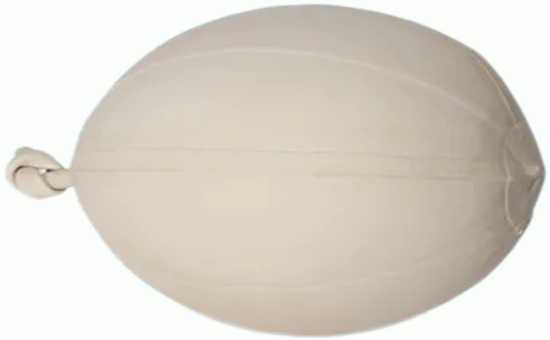
Elasticity refers to the ability of a material to deform after being subjected to an external force and return to its original shape after the external force is removed. Compared with other rubbers, latex reclaimed rubber has higher mechanical strength and better hand-feeling elasticity, and is an ideal raw material for the production of high-elasticity rubber products. When using latex reclaimed rubber to produce high-elastic rubber products, rubber product manufacturers can appropriately adjust the formula to further improve the elasticity of latex reclaimed rubber products. Specifically, the following aspects can be started.
1. Combined use of latex reclaimed rubber with natural rubber and butadiene rubber
The high elasticity of rubber is determined by the macromolecule of the rubber. The large molecular weight is beneficial to the improvement of elasticity, and the more high molecular weight grades with narrow molecular weight distribution, the better the elasticity. In actual production, the molecular chain of natural rubber and butadiene rubber has good flexibility and elasticity. When using latex reclaimed rubber to produce high elastic rubber products, it can be used together with an appropriate amount of natural rubber and butadiene rubber to further improve the elasticity of latex reclaimed rubber.
It should be noted that the existence of crystallization can be used as a physical node to improve the elastic network, which is beneficial to elasticity; however, crystallization will also increase the motion resistance of molecular chains, resulting in a decrease in the elasticity of the rubber compound. Therefore, when the latex reclaimed rubber 2ELYY96 is used in combination with natural rubber to produce high-elasticity rubber products, it is recommended to use a small amount of cis-butadiene rubber to reduce the crystallization ability of natural rubber and improve the elasticity of the latex reclaimed rubber/natural rubber combination.
2. Select high elastic vulcanization system for latex reclaimed rubber
When using latex reclaimed rubber to produce high-elastic rubber products, the elasticity of vulcanized rubber increases first and then decreases with the increase of cross-linking density; moderate cross-linking can reduce or eliminate the slip among molecular chains, which is beneficial to the improvement of elasticity. The type of cross-linking bond will also affect the elasticity of the latex reclaimed rubber vulcanizate.
In the production process of high-elastic latex reclaimed rubber products, the formula of high-elasticity vulcanization system is generally selected, thiazole accelerators or sulfenamide accelerators are used as auxiliary accelerators, and guanidine accelerators are used as secondary accelerators, so that the vulcanizate has high resilience. , the physical and mechanical properties are good, and the hysteresis loss is small.
3. Improve the rubber content of latex reclaimed rubber products
When using latex reclaimed rubber as the main raw material to produce high-elasticity rubber products, increasing the rubber content is the most direct method to improve the elasticity of the rubber. It is recommended to reduce the amount of filler and increase the amount of raw rubber; use latex reclaimed rubber with high effective rubber hydrocarbon content to better ensure the elasticity of the reclaimed rubber vulcanizate.
4. Use reinforcing agents and fillers that have little effect on the elasticity of latex reclaimed rubber
In the production of high-elastic latex reclaimed rubber products, activated carbon black with high reinforcement has an adverse effect on the resilience of vulcanized rubber. It is recommended to use carbon black with large particles, low structure (less sulfur-absorbing rubber), and lack of surface chemical bonding with rubber. , the resilience of vulcanized rubber is relatively better. The elasticity of the latex reclaimed rubber vulcanizate will also decrease with the increase of the amount of inorganic fillers, but it is lower than the reduction range of carbon black; if no more than 30 parts of heavy calcium carbonate, clay and other inert fillers are used, the elasticity of the latex reclaimed rubber vulcanizate will be affected. impact is very small.
5. Choose a softener with good compatibility with latex reclaimed rubber
When using latex reclaimed rubber or latex reclaimed rubber/natural rubber to produce high-elasticity rubber products, use a softening plasticizer with good compatibility with the rubber material and appropriately reduce the dosage, the elasticity of the vulcanizate is better; generally in high-elasticity rubber products In formula design, no or less softening plasticizer should be added as much as possible. It should be noted that the good compatibility of softening plasticizers with rubber does not mean that the vulcanizate has high resilience.
When using latex reclaimed rubber to produce high-elasticity rubber products, rubber product manufacturers must choose suitable latex reclaimed rubber, and appropriately adjust the variety and dosage of compounding agents in the vulcanization system, reinforcing filling system, softening and plasticizing system, etc. The elasticity of latex reclaimed rubber products, the editor will continue to share related issues with you later.
Exclusive original article [commercial authorization] reprint, excerpt and excerpt in any form are prohibited without written authorization. Focus on Hongyun rubber: learn the process formula and raw material technology of producing rubber products from recycled rubber to help you reduce costs and increase profits